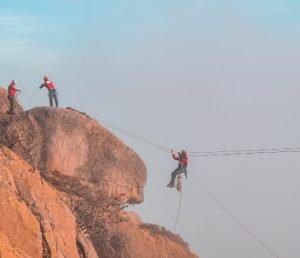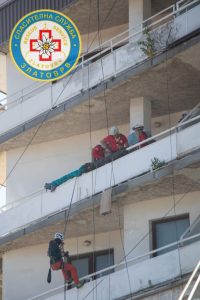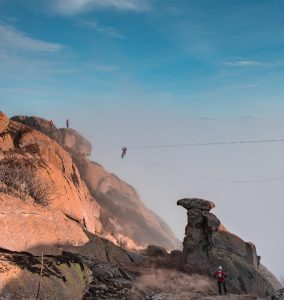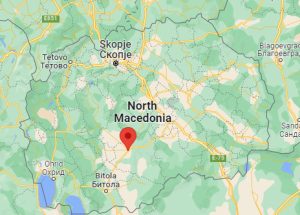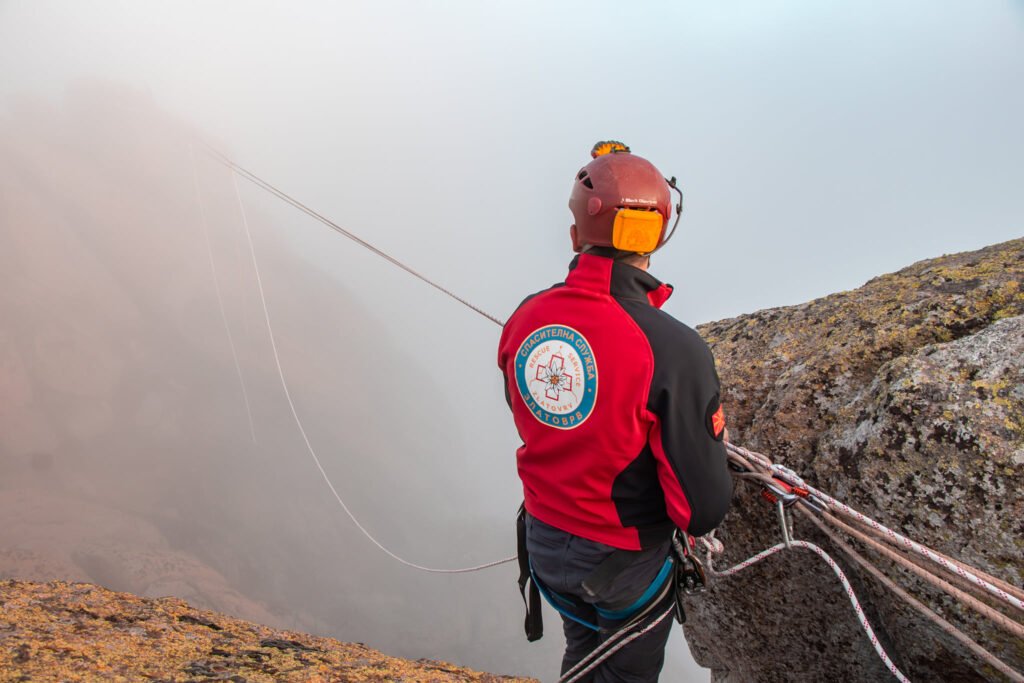Rescue Service Zlatovrv is rescuing people and animals from inaccessible areas and bad weather conditions. Organizing training and educational events for protection in mountain areas, environmental actions, humanitarian events etc.
About Rescue Service and Healthy Community
Rescuing lives is our motto!
The rescue service prevents potential accidents, with the aim of reducing them. Provides assistance and first aid to injured or lost persons and transports them from inaccessible terrains to places where medical teams can pick them up. The association’s goal is to be actively involved in the rescue system in the country, connecting with the state institutions in charge of solving this problem.
In addition to this, the rescue service organizes humanitarian events, blood donation events, afforestation activities, educational events, training persons for protection in mountain areas, training for mountain rescue and rescue from inaccessible places in rural and urban environments, motivating people especially young persons to participate in sports events, hiking and sharing the idea of rescuing people and support in the community. The rescue service is also promoting adventurous tourism in the Pelagonia region and cave exploration, improving local tourism businesses.
Duration of the Good Practice
Rescue Service Zlatovrv was officially registered on 5. August 2020, but has been functioning for over 10 years. The Good Practice is ongoing.
The main institution in charge
Rescue Service Zlatovrv
Darko Nedanoski
T: +389 71 226 443
W: www.zlatovrvrescue.com, YouTube Channel
The Geographical scope of the Good Practice
Regional
Location of the Good Practice
Prilep, Pelagonia region, North Macedonia
Resources needed
In order to start with rescue service, basic equipment (equipment for climbing and descending from inaccessible terrain, rope, clothing, protective equipment, diving equipment, equipment for transport on specific inaccessible terrain, etc.) and transport vehicle (depending on the terrain) are needed as well as at least 50 people for proper functioning.
Evidence of success
Starting from 05.08.2020 the rescue service has been seeking 15 missing persons, rescuing 25 injured persons on inaccessible terrain, organized 2 successful blood donation events, 5 afforestation actions with more than 10,000 plants, provided training for more than 100 young people, supported more than 100 persons in need of help during COVID-19 crisis, rescuing more than 30 animals/pets from inaccessible terrain.
Challenges encountered
The most common challenges the rescue service is facing are insufficient funds, insufficient modern equipment, lack of training centres etc.
Potential for learning or transfer
It is always good to have a reliable team around you, a team of volunteers eager to help those in need, create a safe, green and healthy environment and motivate the people, especially the youth to go a step further in sports activities. Although the rescue service is the perfect place for people who love hiking and adventures, it is not limited to that. There are many ways one can contribute to the community.
The rescue service is motivating people, especially young people to participate in sports events, hiking and sharing the idea of rescuing people and support in the community. The rescue service is also promoting adventurous tourism in the Pelagonia region and cave exploration, improving local tourism businesses.
How to start?
Funding
The rescue service is funding itself with a minimal membership fee from the volunteers in order to provide free service for the community. Other funds are acquired through projects, municipal support and sponsors.
Partners
Potential partners:
- Governmental and/or Municipal institutions can help with funding and contribute towards better logistics and coordination for all activities, especially rescue missions;
- Rescue service teams from other regions for better and faster rescue, exchanging experience and joint training and development;
- Other similar organizations (scouts, local guides, hiking organisations. etc.) can be helpful as well;
- Civil society organizations are a great way of promoting and acquiring funds.
Volunteer training
Almost all of the activities within the rescue service require specific training, especially for rescue actions. In order to have its volunteers ready for action, the rescue service members are having a regular variety of training such as stamina, climbing, first aid, logistics etc. The regular training is usually held 3-4 times a week.
For the new potential members, the professionals from the rescue service organize specific 3-month training where they are tested psychophysically. In the end, they are given a practical exam and an oral exam, if they pass these exams successfully, they automatically become a member of the rescue service.
Additionally, there is regular training for the youth, in order to promote volunteering, sport, a healthy lifestyle and of course as a way to increase the interest in becoming a member.
ERAS Good practice North Macedonia
